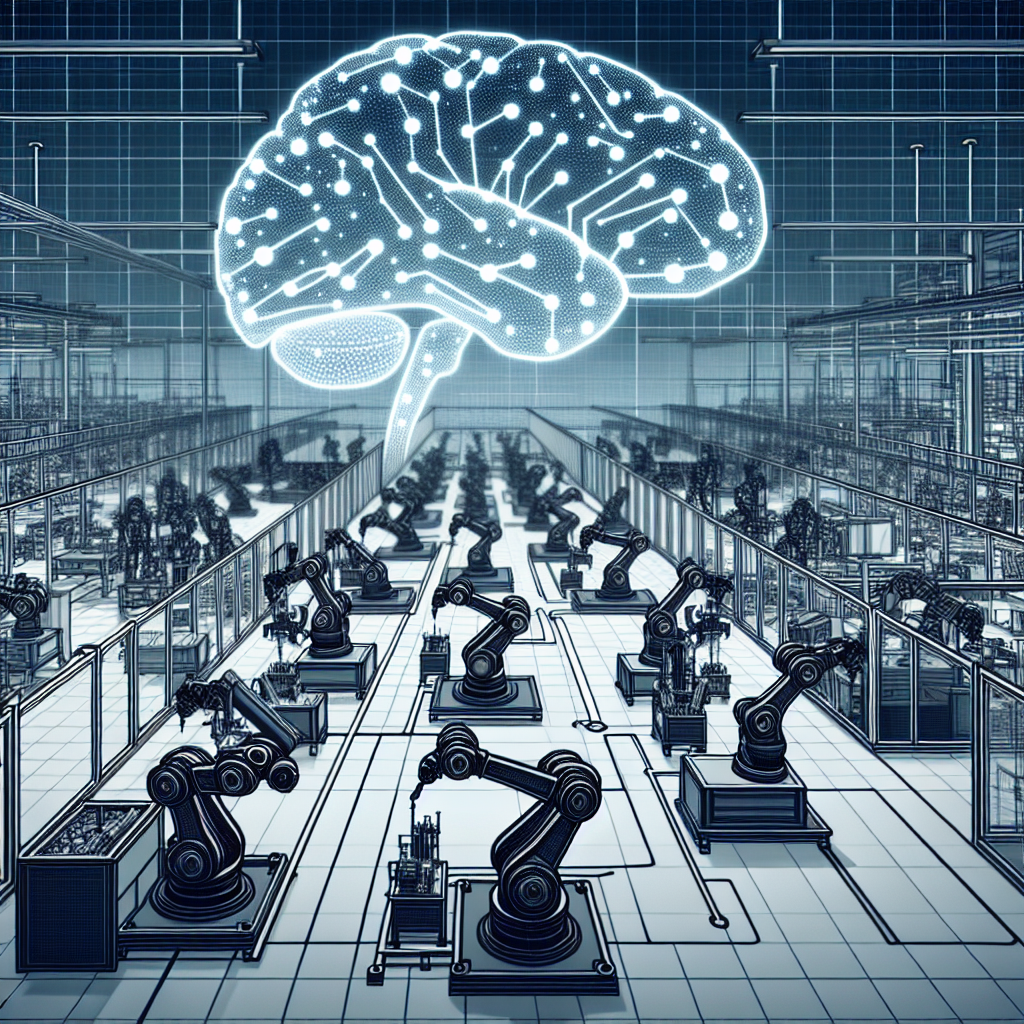Introduction
Artificial Intelligence (AI) has revolutionized many industries, and manufacturing is no exception. With the ability to analyze data, predict outcomes, and optimize processes, AI is transforming the way manufacturers operate. By deploying AI in manufacturing, companies can improve production efficiency, reduce costs, and enhance product quality. In this article, we will explore how AI is being used in manufacturing to optimize production processes.
AI Deployment in Manufacturing
1. Predictive Maintenance
One of the key areas where AI is making a significant impact in manufacturing is predictive maintenance. By leveraging AI algorithms, manufacturers can predict when equipment is likely to fail and schedule maintenance before a breakdown occurs. This not only reduces downtime but also extends the lifespan of equipment, ultimately saving costs for the company.
2. Quality Control
AI is also being used in manufacturing to improve quality control processes. By analyzing data from sensors and cameras, AI algorithms can detect defects in real-time and alert operators to take corrective action. This not only ensures that only high-quality products are shipped to customers but also reduces waste and rework.
3. Production Planning
AI is helping manufacturers optimize production planning by analyzing historical data, demand forecasts, and supply chain information. By using AI algorithms, companies can better predict demand, optimize inventory levels, and schedule production more efficiently. This leads to reduced lead times, improved on-time delivery, and lower inventory carrying costs.
4. Supply Chain Management
AI is also being used to optimize supply chain management in manufacturing. By analyzing data from suppliers, transportation providers, and internal operations, AI algorithms can help companies make better decisions about inventory levels, transportation routes, and supplier relationships. This ultimately leads to a more efficient and cost-effective supply chain.
5. Robotics and Automation
AI-powered robots are increasingly being used in manufacturing to perform repetitive tasks, such as assembly, welding, and painting. By using AI algorithms, robots can adapt to changing conditions, work alongside human operators, and increase productivity. This not only improves efficiency but also enhances worker safety by taking on dangerous tasks.
FAQs
Q: How can AI help manufacturers reduce costs?
A: AI can help manufacturers reduce costs by optimizing production processes, reducing downtime, improving quality control, and streamlining supply chain management. By using AI algorithms to analyze data and predict outcomes, companies can make better decisions that lead to cost savings.
Q: What are the challenges of deploying AI in manufacturing?
A: Some of the challenges of deploying AI in manufacturing include the high upfront costs of implementing AI systems, the need for skilled data scientists and engineers to develop and maintain AI algorithms, and concerns about data privacy and security. Additionally, integrating AI systems with existing manufacturing processes can be complex and time-consuming.
Q: How can manufacturers ensure the success of AI deployment?
A: To ensure the success of AI deployment in manufacturing, companies should start with a clear understanding of their business objectives and how AI can help achieve them. It is important to involve key stakeholders from across the organization in the planning and implementation of AI projects. Additionally, companies should invest in training and development for employees to ensure they have the skills needed to work with AI systems.
Conclusion
AI deployment in manufacturing is transforming the way companies operate by optimizing production processes, improving quality control, and streamlining supply chain management. By leveraging AI algorithms, manufacturers can reduce costs, increase efficiency, and enhance product quality. As AI technology continues to evolve, we can expect to see even greater advancements in manufacturing that will drive innovation and competitiveness in the industry.

